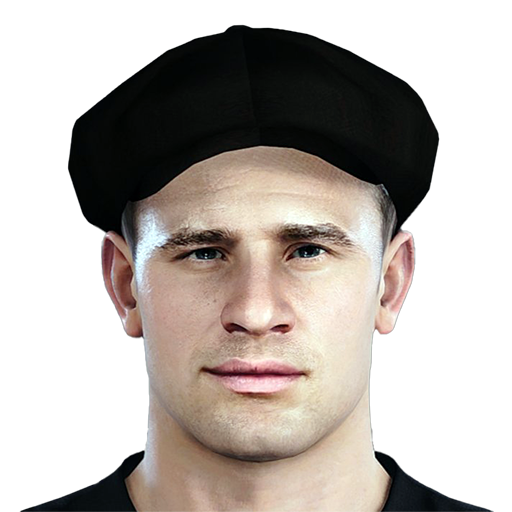Lev Yashin
The Black Spider
On the 27th of May, 1971, in Moscow, a historical event unfolded on a mild afternoon, with the thermometer marking 17 degrees Celsius and a gentle east wind blowing. The Lenin Stadium in Moscow bore witness to this momentous occasion. The stands were packed to the brim, hosting over 103,000 spectators, as estimated. Reports from some newspapers indicated that more than 700,000 people had attempted to witness the farewell game of Lev Yashin, the greatest goalkeeper in the history of football.
The match, a face-off between an All-Star selection featuring legends like Pelé and Beckenbauer, and Dynamo Moscow, ended in a draw. However, the true protagonist was Yashin, the “Black Spider,” who left the field in tears, bidding farewell to the fans and a career that had rendered him immortal.
For decades, the mysterious aura surrounding Soviet players, hidden behind the Iron Curtain, fuelled myths and legends. Lev Yashin personified this fascination more than anyone, becoming a legendary figure well beyond the Soviet borders. To understand his impact, we need to delve into the context of the era.

Lev Ivanovich Yashin, born in 1929 in Moscow, grew up in the capital of a Soviet Union undergoing profound social, political, and economic changes. Despite the harshness of Stalin’s regime, Moscow and the newly-formed USSR made tremendous economic and industrial progress in the 1930s.
The capital transformed from a predominantly agricultural city into a major industrial and political hub; the collectivization of agriculture and the five-year plan significantly contributed to this development.
Moscow also expanded demographically, with new residential districts emerging to accommodate the city’s growing population.
This urban expansion was part of a broader effort to transform it into a modern, industrial metropolis. It was in one of the city’s numerous steel and metallurgical industries that young Lev Yashin began his journey, the son of two factory workers, working from an early age to replace many workers engaged at the front.
The work was tough and grueling, especially for a child, but it was in the factory that Yashin toughened his physique, developed remarkable reflexes, and – most importantly – began to nurture a passion for sports.
At around 19, Yashin joined Dynamo Moscow, a sports club of the Ministry of Internal Affairs.
Allow me a brief digression: Dynamo Moscow, a young sports club established in 1923, was closely associated with the Soviet secret police, the NKVD.
This association often led to public distrust, with accusations of the team corrupting referees or opponents.
During the Soviet era, football teams often had ties with state institutions or organizations as part of the Soviet sports system structure.
Unlike other countries, the communist regime imposed regular salaries on all footballers, comparable to those of a soldier or a teacher.

Yashin was a black giant: I watched him trying to predict where he would dive and only later did I realize that he must have hypnotized me. As I ran up for the kick, I saw him move to the right; I could have shot to the other side, but I couldn't manage it. That day, my shot went exactly where Yashin wanted it to go.
Yashin’s transition to football in 1954, following an injury to Dynamo’s goalkeeper, marked the beginning of an extraordinary phase in his career.
He clinched five Soviet national championships (1954, 1955, 1957, 1959, and 1963) and reached a pinnacle in 1963, a precursor to the prestigious Ballon d’Or.
His six goals conceded in 27 matches that season underscored his exceptional skills, leading to international recognition and the Ballon d’Or, a feat unmatched by any goalkeeper for nearly seventy years.
Technically, Yashin revolutionized goalkeeping, moving off his line and commanding the field with an authoritative presence.
His black uniform, which seemed to elongate his limbs (hence the nickname “Black Spider”), and a commanding approach, intimidated opposing strikers.
Sandro Mazzola, a penalty kick opponent, recounted Yashin’s mesmerizing charisma, almost supernatural in its effect. Yashin’s technical prowess included extraordinary reflexes, bravery in confrontations, impeccable positioning, and a knack for saving penalties, contributing to his iconic status.
Yashin’s global debut in the 1958 World Cup in Sweden marked the start of his international ascendance. Despite an early exit in the tournament, his presence in goal began to draw global attention.
The 1960 European Championship in France saw the USSR, led by Yashin, demonstrate its strength. They advanced to the finals, with Yashin conceding only two goals throughout the tournament, showcasing a legendary performance in the final against Yugoslavia.
However, the path to glory wasn’t always smooth. Injuries and tough matches, like the 1962 World Cup in Chile and a knee injury against Brazil in the 1966 World Cup in England, tested his resilience and commitment.
Lev Yashin’s legacy in football isn’t just about records and titles. He symbolizes resistance, innovation, and an indomitable spirit. From the snowy fields of Moscow to the global stage, Yashin wrote indelible chapters in sports history. His farewell in Moscow was more than a career goodbye; it was a tribute to a legacy that transcends time, eras, and regimes. Yashin remains, eternally, the “Black Spider” of the goal, a towering figure against whom countless attacks broke, a myth that continues to inspire.




